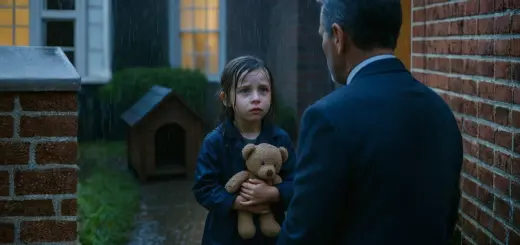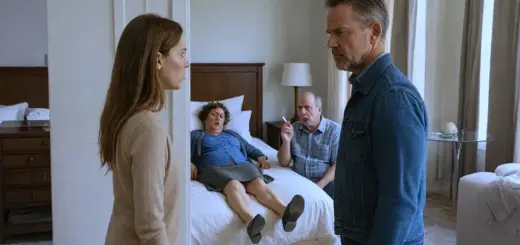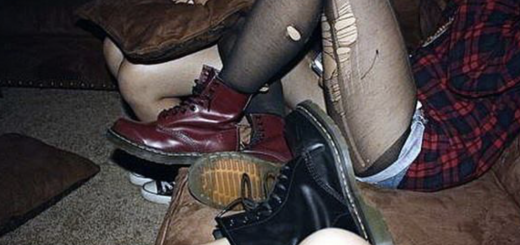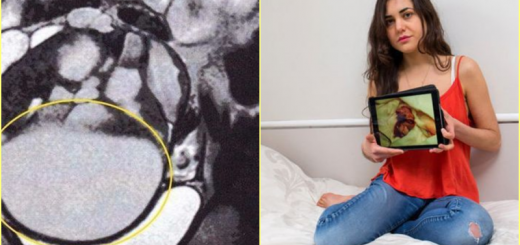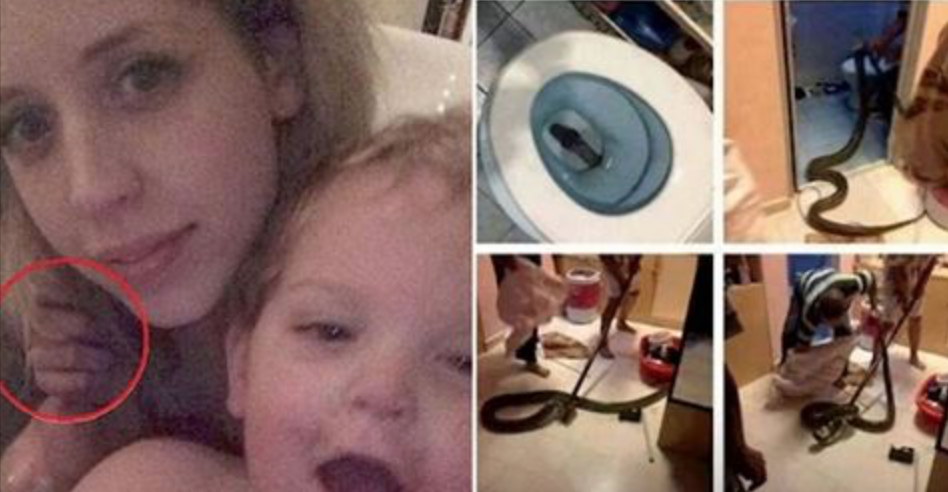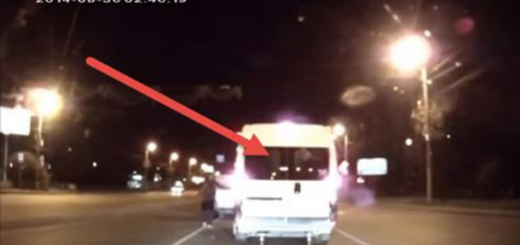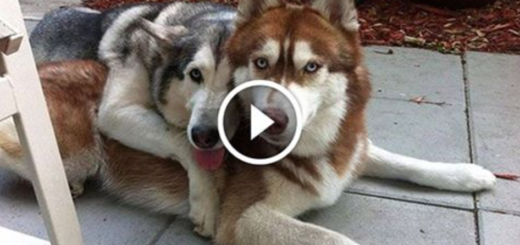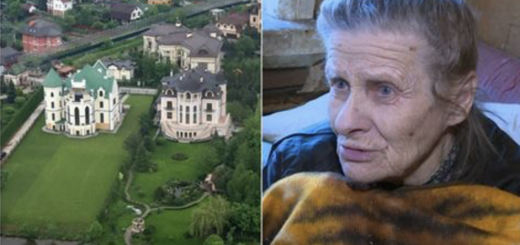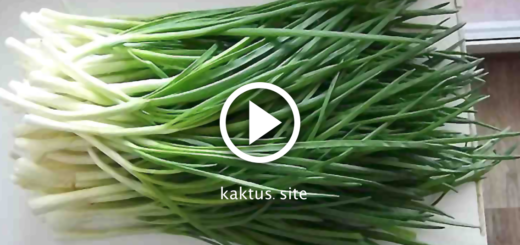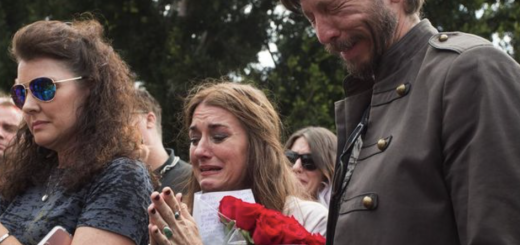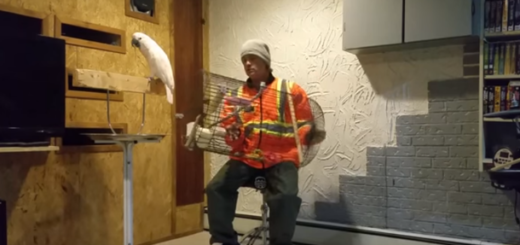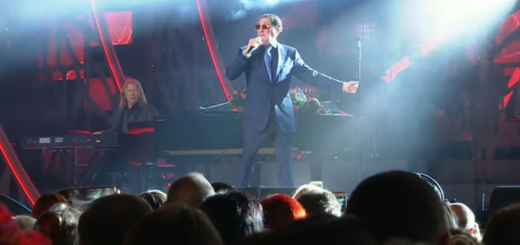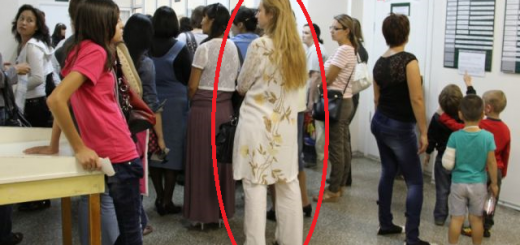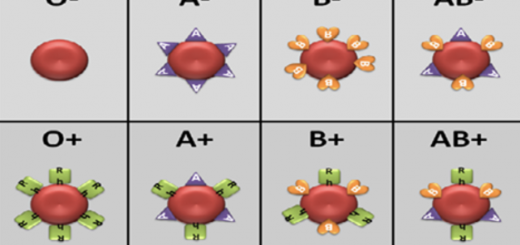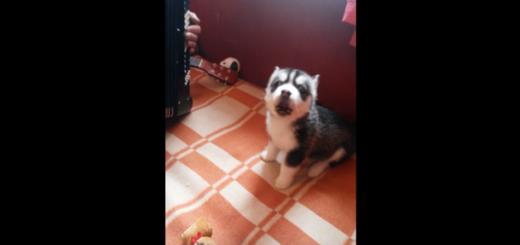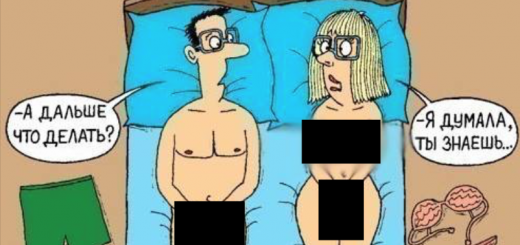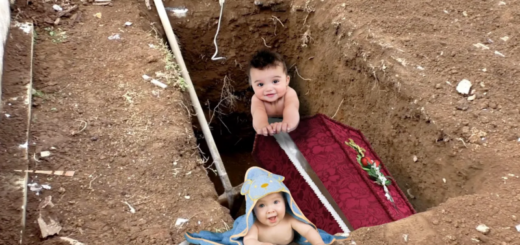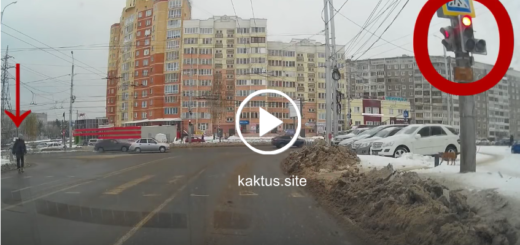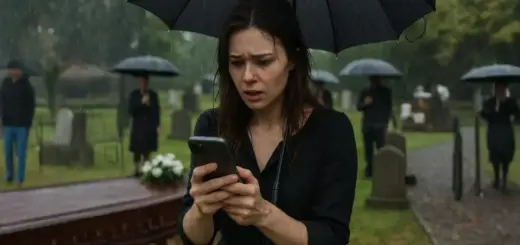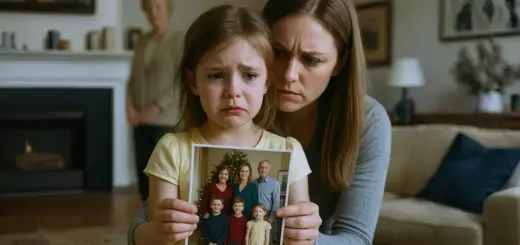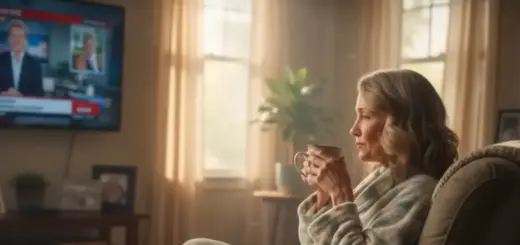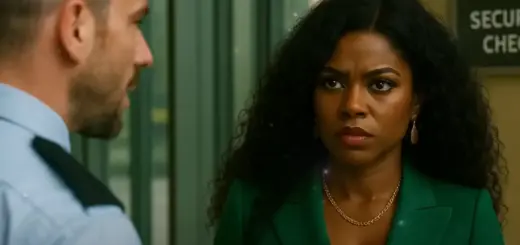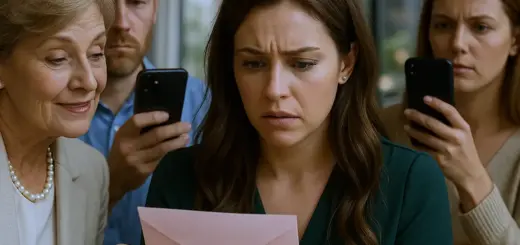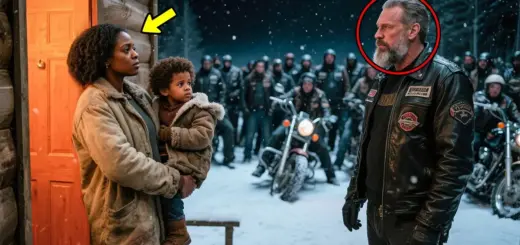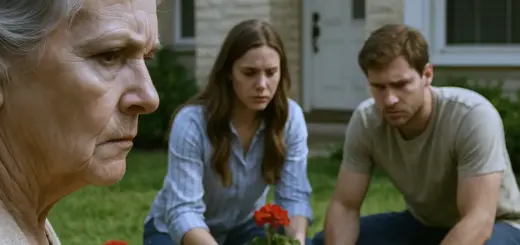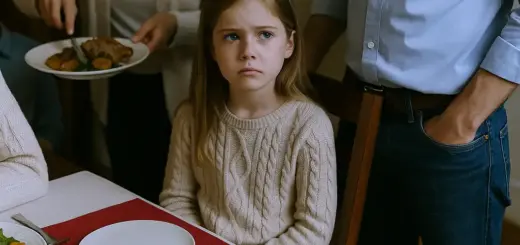Jesse and Ryan had their own bedrooms. Two each, really. One at home and one here. Julia had none. She asked me once, quietly, “Why do I share with you? Why don’t I have my own?”
I smoothed her hair and told her it was temporary. I lied. Because the truth was, I couldn’t save fast enough to get us out. Nearly every paycheck went straight into the household for food, bills, and contributions I was expected to make.
I tried to save, but it was never enough. And every time Julia asked why she didn’t have what her cousins did, it cut deeper.
It’s funny. People think cruelty has to be loud—screaming, shouting, throwing and breaking things. But sometimes cruelty is silent. It’s a quiet decision to fund one child’s house and deny the other rent money. It’s a glitter name above a door where your daughter’s crib should be. It’s the word «fine» tossed at you when you’re shoved into an attic.
That silence? It’s louder than yelling. And I could feel it building. Because what started with me was now aimed at Julia, and I wasn’t going to let them erase her the way they erased me. I didn’t know how yet. But I knew something had to break.
I couldn’t sleep that night. Julia finally dozed off beside me in our attic room, clutching her stuffed bunny like it was the only anchor she had left. I lay awake, staring at the ceiling where water stains formed shapes in the dark. Every creak of the old beams felt like the house itself reminding me where I stood: underneath everyone else.
I pulled out my phone and opened a chat with a friend who worked at a bar downtown. She’d told me before that they were always short on hands, and I knew if I took the job, it could be my ticket out. No sleep, no rest, but freedom never comes cheap.
My thumbs moved before I could stop them. Do you still need night staff? I’ll take the shifts. Send.
It was reckless. I already worked days while Julia was in school, and nights were supposed to be for rest. But I couldn’t rest in that attic, not after watching my daughter cry over those damn Christmas cards. If I had to run myself into the ground to protect her, so be it.
I was done waiting for scraps from people who never planned to feed me. I crept down the hall to Grandma’s room. Her lamp was still on, a soft glow spilling under the door. I knocked lightly and went in.
She was propped against her pillows, glasses perched low on her nose, flipping through a crossword, sharp as ever. “Couldn’t sleep?” she asked, without looking up.
I laughed softly. “You know me too well.” I sat on the edge of her bed, pulled one of the glossy cards from my pocket, and handed it to her.
She studied it for a moment, her brows knitting. Then she saw it. Or rather, she saw the absence. Her mouth pressed into a thin line. “Julia was there.”
“Yes,” I said flatly. “Front row, yellow dress. But apparently yellow doesn’t match the uniform they wanted.”
She set the card on the blanket with a sigh. I told her my plan then: the night shifts, the bartending job, the hours that would carve into whatever was left of me. “I can’t keep her here,” I said, my voice breaking on the last word. “Not when they treat her like this. I’ll work nights, save… We’ll move out.”
Grandma looked at me for a long time, her eyes sharp in the lamplight. Finally, she said, “You won’t need to do that.”
I frowned. “What do you mean?”
She shook her head, turning back to her crossword. “Just leave it with me.” Cryptic, like one of her puzzles. I didn’t press. I kissed her cheek and went back upstairs, still thinking about the bar job.
Morning came too soon. I dragged myself downstairs, half expecting another fight, another lecture. Instead, I noticed something strange on the living room table. A box. Small, neatly wrapped, sitting among the leftover decorations like it belonged.
I hadn’t seen it there the night before. Mom spotted it before I could speak. “Oh, how sweet. A gift from Grandma.” She smirked, peeling the ribbon like she was unwrapping a prize.
I stood frozen, Julia peeking from behind my leg. Mom lifted the lid. Her smile collapsed. She pulled out a stack of papers, skimmed them, then froze. The color drained from her face.
“What is this?” she hissed. Then louder, to the whole room, “What the hell is this? Is this some kind of joke?”
My dad stepped closer, trying to read over her shoulder. His mouth fell open. I leaned forward, my heart pounding. I caught a glimpse of the header on the top sheet. Legal formatting. Official seals. Not a joke.
Before I could speak, the hallway creaked. Grandma entered, slow but steady, the lawyer I’d seen once or twice before at her side. She didn’t raise her voice. She didn’t need to.
“It’s not a joke,” she said calmly. “That is an eviction notice. And I’ve already changed my will. Megan and Julia will have this house. You’ll get nothing.”
Silence detonated in the room. Mom sputtered. Dad stared at the papers like they might combust. Julia gripped my hand so tightly it hurt. I couldn’t move.
Then the shouting started. Mom’s voice cracked, high-pitched and wild. “You can’t do this! You’re not in your right mind!”
Dad tried a different angle, smoother, pleading. “Think about what you’re saying. Think about the family—”
Grandma didn’t flinch. “I am thinking about the family. I’m thinking about the child you tried to erase.”
The lawyer cleared his throat. “Everything was drafted correctly. Witnessed, signed. It stands.” I swear I saw Dad’s knees buckle.
And me? I didn’t know whether to laugh or cry. After all these years of being invisible, erased, shoved into attics and silenced, it wasn’t me who finally screamed loud enough to be heard. It was Grandma. And she’d chosen me.
I met Julia’s eyes. She was still clutching my hand, her face pale. But for the first time in days, I saw something in her expression besides confusion. Hope.
The chaos swelled again. Mom was pacing, Dad muttering, both of them throwing accusations like confetti. “Megan manipulated you! She poisoned you against us! This is elder abuse!”
Grandma’s laugh cut through it all, sharp and bitter. “The only abuse here is what you’ve done to her and that child.”
My mom’s mouth snapped shut. My dad sat down heavily, as if the air had gone out of him. Julia leaned into me, whispering, “What’s happening?”
I kissed her hair. “Something good,” I murmured. “Something finally good.” I didn’t know what came next. Would they fight it in court? Spread more lies? Try to claw their way back into control? Probably. But right then, in that moment, the tide had turned.
The house went quiet after Grandma’s bombshell. Too quiet. No shouting matches, no slamming doors. Just the heavy, suffocating silence of people plotting. My parents barely looked at me. Dad busied himself in the garden, hacking at shrubs that didn’t need cutting.
Mom clattered dishes louder than usual, the noise sharp and deliberate. Her version of shouting without words. Julia noticed. “Is it over now?” she asked me one night in our attic room, her voice small in the dark.
I wanted to say yes. I wanted to lie. Instead, I kissed her forehead and whispered, “Not yet.” Because I knew better. That silence wasn’t peace; it was the sound of a storm building.
It arrived three mornings later. A knock at the door. Sharp. Official. My chest tightened. Julia’s hand slipped into mine instinctively.
Mom beat me to the door, her tone instantly syrupy. “Oh, officers, thank you for coming.” And there they were. Two police officers and a woman with a clipboard. A.P.S. Adult Protective Services.
My stomach dropped. The taller officer cleared his throat. “We’ve had a report of possible elder abuse in this household. We’ll need to speak to everyone separately.”
Elder abuse. Of course. I didn’t need a crystal ball to know who made that call. They separated us. Grandma to her room. Julia was led gently to the kitchen, though she looked back at me, wide-eyed and scared.
I sat stiffly on the couch while Mom hovered in the hallway, whispering words like “confused” and “safety” and “we’re worried.” My blood ran cold. They weren’t just trying to smear me; they were trying to put me in handcuffs.

